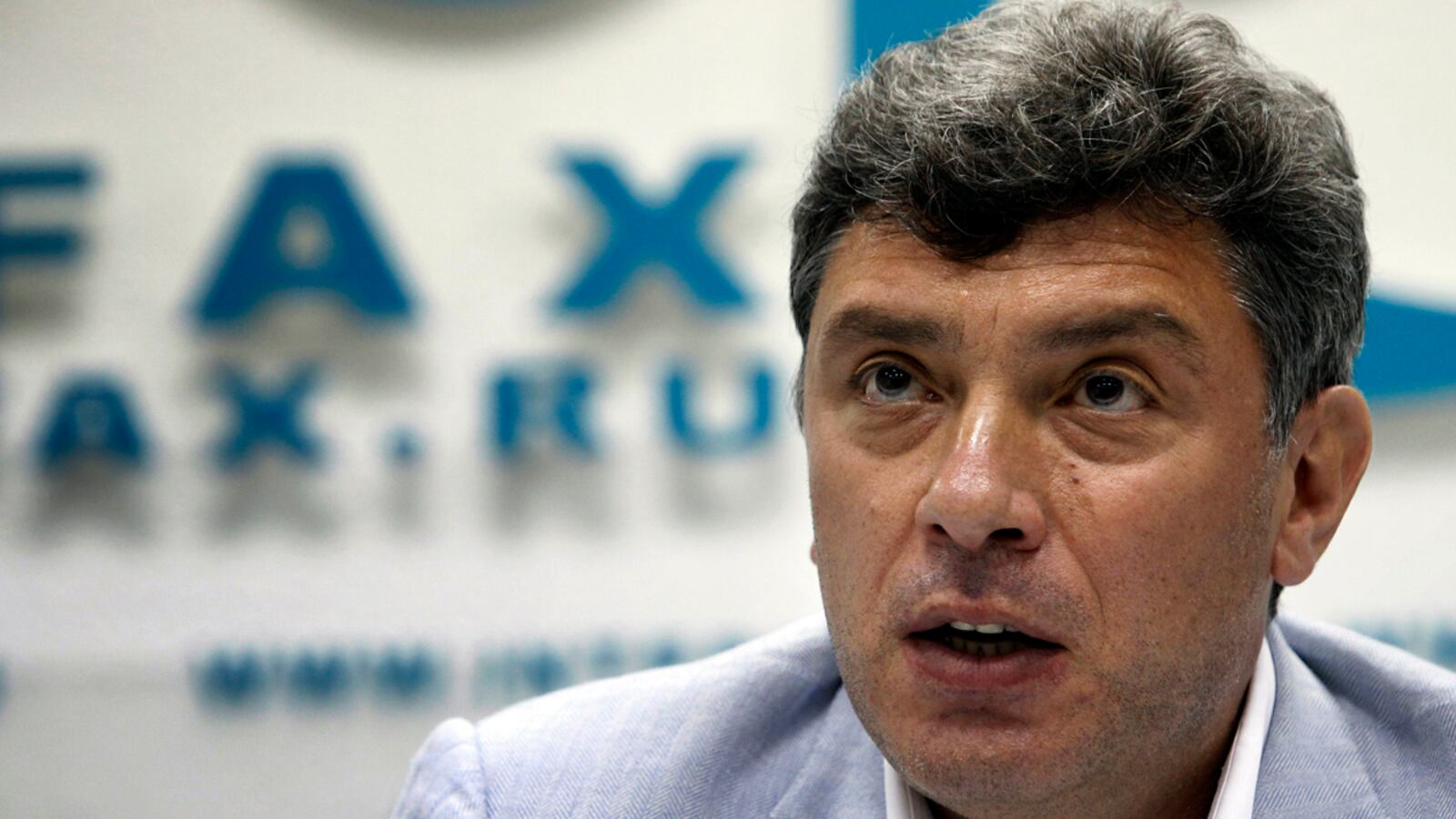Boris Nemtsov, the leader of the opposition People’s Freedom Party and a former deputy prime minister, was arrested three times this year for organizing street protests. In January he spent 15 days in jail. He said now that Vladimir Putin is coming back to the presidency, the opposition has no choice but street politics. Nemtsov spoke to Newsweek’s Anna Nemtsova (no relation) about his party’s plans for the future.
Were you or your colleagues in the opposition surprised when Vladimir Putin decided to run for president again?
His decision was predictable, but we were shocked by the hypocrisy and cynicism of the announcement: he declared he was coming back long before the elections. Putin and Medvedev did not even bother to share their decision to swap their chairs with the United Russia party before the congress. Russians had no choice but face his final decision; his usurpation of political power is sickly humiliating.

What does Putin’s return mean for Russia’s future?
His return means mass emigration, as Russia is entering a destructive stage of its history that will cause the country to fall apart. This is the worst scenario possible: many years of the worst type of authoritarian regime—not any different from what Lukashenka has in Belarus. Nobody changes at the age of 60; Putin will eventually develop into a tougher dictator and run Russia the way Mubarak ran Egypt or Gaddafi Libya. Under Putin, all institutions will suffer stagnation and continue to degrade: the courts will remain dependant on calls “from above”; his friends’ corruption will blossom; the country’s economy will continue to depend only on gas and oil.
What is the reaction in the Russian business and intellectual elite?
All my friends in big business plan to take their capital out of Russia. Some prefer to emigrate. Putin’s return will cause Russia’s economy to lose at least $100 billion of private capital, as business is on the run now. Hundreds of thousands of the young, smart and successful professionals, will leave the country before closing time. Fearing more repressions, more raider takeovers of business, worse state corruption, people lose their optimism. They drop their hands. They see a hopeless situation.
What is the opposition planning to do?
When people have no chance to vote the sickening leader out of power, they act in a different way. We are going to mobilize for a struggle. From now on, there will be mass street protests all across the country. Last Sunday, a few hundred people came out for a spontaneous protest to Moscow’s central Pushkin Square, though there was no proper organization or information distributed by any of us. Next week, the united opposition parties will gather for one more congress that will involve left opposition, national patriots, the People’s Freedom Party, and Solidarity right-opposition movements. Alexei Navalny, a popular corruption fighter, and Yevgeniya Chirikova, the leader of ecological movement involving half a million people, will join our congress as well. Some naive parties, like Fair Russia, still hope to be given a piece of the power pie. We have one bad example of an opposition leader who thought it was possible to agree with the Kremlin, Mikhail Prokhorov. His party was discredited and he is now facing overwhelming attacks.
Last June U.S. Secretary of State Hillary Clinton expressed disappointment at the Russian Ministry of Justice’s refusal to register your party, the People’s Freedom Party. Does the Russian opposition receive much moral or financial support from the West?
The fate of Russia should be decided by the Russian people, here at home. We do not need any support from outside. The Freedom Party has 46,000 members in 46 regions of Russia. Our rows are tight; we have made a decision to get rid of the worst scenarios that Putin is offering us. On Oct. 22, the Russian opposition will come out under the slogan: “Let's put an end to this regime!” This is going to be a long-term struggle, full of risk. The cheaper oil is, the less popular Putin is going to be, and the more repressive his methods will become. Most progressive Russians feel apathy right now. But there are some who are still optimistic enough to continue the struggle.





